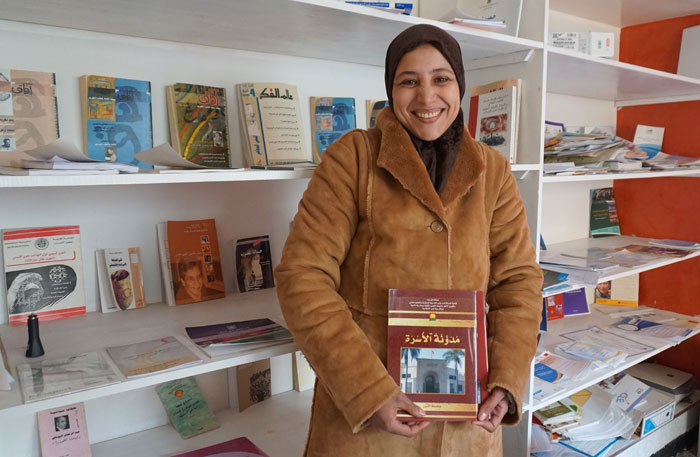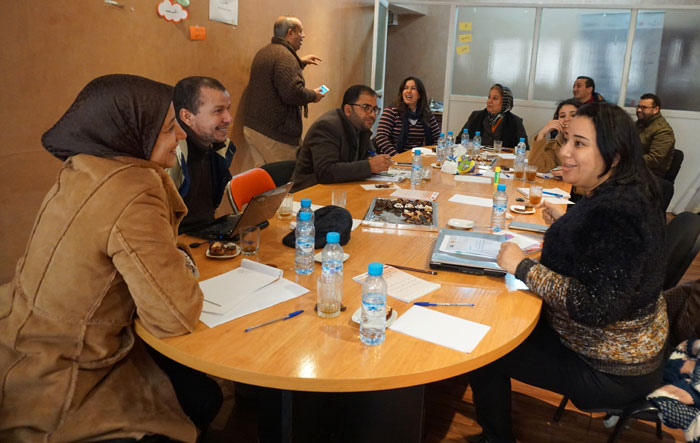I remember Khadija sitting across from me, waiting her turn to speak as the other members of Association Massarat share stories of their work. When she started, Khadija spoke softly, but her voice got stronger as she told me about her work for more than 10 years to improve the literacy rates in her community using a very unique approach.

Khadija teaches people to read by providing texts on human rights and civic participation. Her students are gaining reading skills along with knowledge of their rights as citizens in Morocco and the opportunities they have to enact change in their own community.
Khadija has partnered with Association Massarat, a local civil society organization, for the past few years, participating in community training sessions about advocacy techniques. She attended a session that they hosted last year about the newly established Entity for Parity, Equal Opportunities and Gender Approach (EPEOGA) Councils throughout Fez Commune. A new idea, the nationally-mandated Councils have been established to provide women, youth, and other disadvantaged populations with a stronger voice with local government.
Counterpart’s Civil Society Strengthening Program (CSSP) has been supporting Association Massarat for over a year, offering technical assistance to create the councils. They represent the first formal avenues for these populations to identify important community needs and to share them with local Commune representatives. In doing this, they can make sure that they are reflected in Commune budget priorities. Khadija was encouraged to apply for a leadership role. To her surprise, she was elected to be the first President of her Commune’s Council.

With this new role, Khadija has been able to bring the concerns of her community right to the local government representatives. The reception has been overwhelmingly positive. The President of the Commune of Ribat Al Khir, Abdelsamad Selwane, praised the impact that Khadija and the EPEOGA Council has had on the Commune, already helping to re-shape local government priorities based on citizen needs. Khadija, he noted specifically, has been a champion for her community and women in particular. He has been impressed with both the quality of her ideas and the professional way that she has been able to communicate them to the Commune — skills that Khadija largely attributes to her Massarat advocacy training:
“Advocacy is about communication. Before working with Massarat and Counterpart, advocacy to me was just about listening. I didn’t know that I had the right to speak and make my voice heard. Now, everything is different.”
Since taking office as the EPEOGA Council President in the Commune of Fez, Khadija has pushed forward proposals that would allow the Commune to support community organizations by providing job training for young women and improved job placement for local youth. She has also suggested establishing a community cultural center that will offer activities to keep youth off the streets such as government-sponsored literacy and tutoring programs. With help from Massarat and Counterpart, Khadija is improving the quality of life in her own community, and serving as an example for young women who are inspired by the leadership role she has enthusiastically and confidently taken up.





